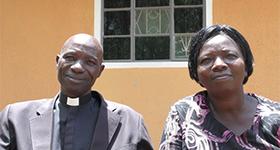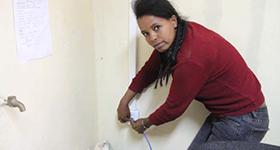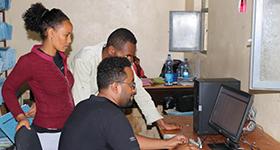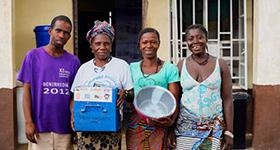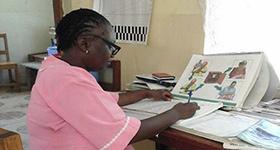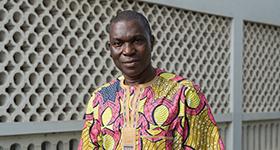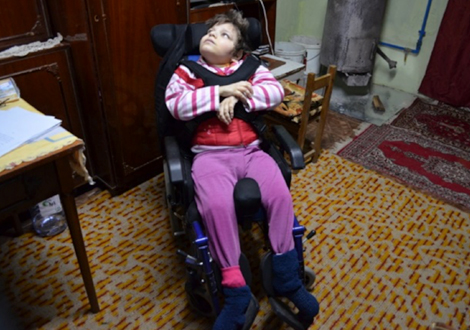
D at home in her new chair.
Background
D is 10 years old and lives with her mother and two half-siblings in a village in Cluj County, Romania. D has carnitine deficiency and severe psychomotor impairment. When her biological father died, his family banished D and her mother from the house, leaving them without legal rights or support. D's mother remarried and had two more children, but her second husband left the family to work abroad. Income is scarce, and D's mother relies on extended family who send money for medicines and clothing.
Without a wheelchair, D was mostly confined to her home and rarely received visitors. People in rural communities in Romania have very little information about people with disabilities, partially because people who have mobility impairments are often unable to leave their own courtyards and are therefore barely visible to the community. Most of the time, they are simply ignored. Such was the case for D, until the The Accelerating Core Competencies for Effective Wheelchair Service and Support (ACCESS) project intervened.
Intervention
Through a grant awarded under Advancing Partners & Communities (APC), World Vision strengthens the consistency and sustainability of wheelchair service provision in Kenya, India, Romania, El Salvador, and Nicaragua. The ACCESS project is helping to address the issue of development organizations too often distributing wheelchairs without proper assessment, fitting, or follow-up as outlined in the World Health Organization (WHO) Guidelines.
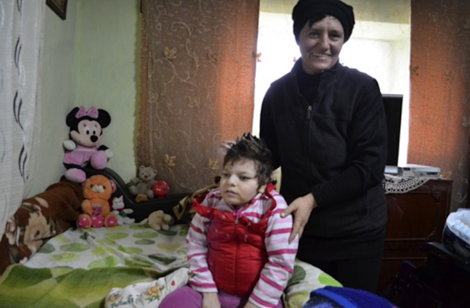
D and her mother at home.
This year, ACCESS's Citizen Voice and Action groups, an effective approach to increase local government accountability, organized various community engagement activities. In Cluj, students at the local school organized a small fundraising campaign and donated all the money to D. Two girls and one of their teachers came to D's home to deliver the money. Although the girls were living in the same village, they had no idea that a girl with a disability was living just around the corner. It was quite a surprise for them to meet her, to hear her voice, and to listen to her mother tell their story.
Outcomes
D's mother nearly cried; she was so touched by the children's initiative and generosity. A visit of any kind was rare, and other children never visited D. This was the first time she saw other children care for her daughter. D, too, was delighted with her visitors and smiled and laughed with them. The two girls and their teacher were very touched by D's story and want to get to know her better and become friends.
The ACCESS project also gave D a wheelchair and a car seat to travel to the city for medical checkups. She can also sit in her yard, which makes her very happy. D has friends in the village who visit and play with her. The wheelchair has made life easier for D and her family, but it is the caring community that adds fulfillment to their lives.

